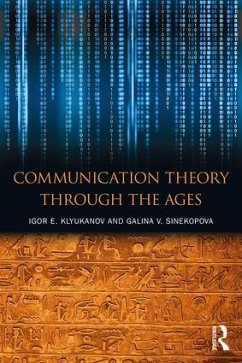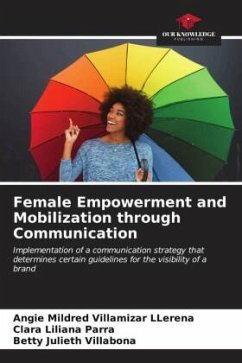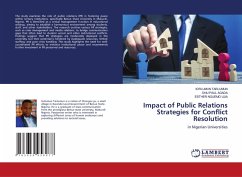
Silencing Identity through Communication
Situated Enactments of Sexual Identity and Emotion in Japan
Versandkostenfrei!
Versandfertig in 6-10 Tagen
51,99 €
inkl. MwSt.

PAYBACK Punkte
26 °P sammeln!
This book explores the ways in which "ordinary"heterosexual people habitually (and without malice) make homosexualpeople invisible in ordinary communication processes in Japanesecommunities in Japan and the U.S. I raise the question: What are thescenes and communication practices in and through whichhomosexuality becomes invisible or irrelevant to identification ofthe self? First, I explore the communicative style of being ordinary, in and through which heterosexuals habitually enact a complete lackof awareness of homosexuals. Second, while addressing Japanesesilence and indirect and ambiguous...
This book explores the ways in which "ordinary"
heterosexual people
habitually (and without malice) make homosexual
people invisible in
ordinary communication processes in Japanese
communities in
Japan and the U.S. I raise the question: What are the
scenes and
communication practices in and through which
homosexuality
becomes invisible or irrelevant to identification of
the self? First, I
explore the communicative style of being ordinary,
in and through
which heterosexuals habitually enact a complete lack
of awareness
of homosexuals. Second, while addressing Japanese
silence and
indirect and ambiguous communication practices, I
examine a direct
mode of Japanese communication called speaking
straightforwardly. Third, I analyze cultural
premises regarding
social and emotional selves associated with being
ordinary and
speaking straightforwardly. Fourth, I describe a
silencing form of
communication which cultivates gut-level discomfort
and fear of homosexuals. Fifth, I analyze Japanese heterosexual
male-
centered lovemaking scenes in ero-manga which provide
possible
sources of misunderstanding between males, females,
and male
homosexuals.
heterosexual people
habitually (and without malice) make homosexual
people invisible in
ordinary communication processes in Japanese
communities in
Japan and the U.S. I raise the question: What are the
scenes and
communication practices in and through which
homosexuality
becomes invisible or irrelevant to identification of
the self? First, I
explore the communicative style of being ordinary,
in and through
which heterosexuals habitually enact a complete lack
of awareness
of homosexuals. Second, while addressing Japanese
silence and
indirect and ambiguous communication practices, I
examine a direct
mode of Japanese communication called speaking
straightforwardly. Third, I analyze cultural
premises regarding
social and emotional selves associated with being
ordinary and
speaking straightforwardly. Fourth, I describe a
silencing form of
communication which cultivates gut-level discomfort
and fear of homosexuals. Fifth, I analyze Japanese heterosexual
male-
centered lovemaking scenes in ero-manga which provide
possible
sources of misunderstanding between males, females,
and male
homosexuals.












